Testosterone Therapy for Military? Pentagon Considers Hormone to Boost Combat Performance

The Department of Defense has been studying testosterone therapy for military, finding out if it could keep the brain and muscles working optimally even during long periods of combat.
Medical researchers told that when troops are engaged in extended hours of physical activity such as contingency and military operations, they’re unable to take the calories necessary to endure the high mental and physical function.
The caloric deficit, which in some cases reach as much as 50 to 60 percent below the needed amount, may result in fatigue, muscle, cognitive decline and in men, a decline in testosterone. This leaves them susceptible to illness, wounds, injury or death.
Researchers at Pennington Biomedical Research Facility and the Army Research Institute of Environmental Medicine of Louisiana State University has conducted a study to know if keeping a normal testosterone levels in times of calorie restriction could boost combat performance or at least lessen the negative effects.
This study of testosterone therapy for military will provide insight on the role of testosterone in keeping agility, strength and brain functions.
Issues on Obesity in US Military
The study called ‘Optimizing Performance in Soldiers Study’ is ongoing at Baton Rouge, Louisiana. It is participated by 50 men, with ages 18 to 39. In the first phase, participants will be given food and monitored on an outpatient basis. In second phase, they will be living at the research institute, eating the same amount of calories as military men would consume in the battleground. Further, they will be undergoing rigorous physical activity, simulating the pressure of combat and hitting a caloric deficit of 55 percent below the energy expended.
In this phase, half of the subjects will be given weekly testosterone therapy for military shots to keep their levels of hormone while the rest will get a placebo. After the 28-day Phase Two, the participants will go back to their normal levels of exercise and food, and will be watched for weight gain.
The goal of the experiment is to check if they can avoid a soldier from muscle break down during calorie restriction and if they will be better able in performing a repeat mission. They try to look if not keeping the right levels of hormones could worsen their performance on the next training exercise or the next mission.
The Testosterone therapy for military study is not geared in knowing whether soldiers could transform into super warriors through testosterone injections. Rather, this $5 million research is aimed toward high-intensity stressful conditions done by combat arms troops and special operations personnel. In a nutshell, this is only ideal for the most extreme conditions.
The study is only one of the several studies of the Defense Department to discover the influence of supplements and diet on muscle mass and cognitive function.
The Air Force Research Laboratory has teamed with the Center of Nutrition, Learning and Memory, which is a partnership between the Abbott Laboratory and the University of Illinois, on how the nutrient lutein can help enhance brain performance.
Lutein is a pigment present in many fruits and vegetables. It plays an important role in learning, memory and cognition. They are studying if Omega-3 fatty acids can help special operations soldiers and recruits concentrate.
The study aims to learn if they can improve cognitive function even under stress since these young people who undergo the Infantry Basic Officer Leaders Course and the Ranger School are definitely feel stressed and pressured during certain times in the programs.
Nutrition is a very important part of a soldier’s fitness but researchers of testosterone therapy for military study may unravel more insight into the effect when troops cannot eat or drink sufficiently to maintain high function level.
Testosterone Therapy for Military? Pentagon Considers Hormone to Boost Combat Performance
Saleamp Design February 17th, 2017
Posted In: Testosterone Therapy
Tags: brain performance, calorie restriction, cognitive function, combat performance, lutein, nutrition, obesity, Omega-3 fatty acids, testosterone, testosterone injections, testosterone therapy, testosterone therapy for military
Key Brain Health Nutrients to Keep an Aging Brain Sharp
Diet is one of the most influential components to maintaining proper brain health as we age, and to help maintain memory and cognitive function, it is important to take brain health nutrients to fight aging. Protect your brain by consuming these healthy nutrients.
 Brain Health Nutrients #1: Magnesium
Brain Health Nutrients #1: Magnesium
Magnesium decline in the body is believed to play an important role in cognitive decline, memory loss and early onset dementia. Taking supplemental magnesium and eating magnesium rich foods will help magnesium related cognitive decline. Magnesium rich foods includes: chard, spinach, pumpkin seeds, yogurt, almonds, black beans, avocados, figs, dark chocolate and bananas.
 Brain Health Nutrients #2: Omega-3 Fatty Acids
Brain Health Nutrients #2: Omega-3 Fatty Acids
Fish rich in Omega-3s are great for heart health but also help maintain cognitive skills. One study provided mice Omega-3 polyunsaturated fatty acids which showed cognitive improvement as they aged showing better object recognition memory, spatial and localized memory, and aversive response retention. Great fish options include: Salmon, Mackerel and Tuna.
 Brain Health Nutrients #3: Cocoa Flavanols
Brain Health Nutrients #3: Cocoa Flavanols
A 2014 study of the impact of high cocoa flavanol foods reported enhanced DG function (Dentate Gyrus) after three months of consumption. Dentate Gyrus is a part of the hippocampal formation in the brain often associated with cognitive aging and linked to memory. The flavanols are found naturally in cocoa and more present in rich dark chocolate than milk chocolate.
 Brain Health Nutrients #4: Cruciferous Vegetables
Brain Health Nutrients #4: Cruciferous Vegetables
Fruits, whole grains and vegetables have been identified by the National Institute on Aging as beneficial in delaying cognitive decline and other chronic diseases like type 2 diabetes and heart disease. Dark green, leafy, cruciferous vegetables like spinach and broccoli were found to help the most. The Mediterranean diet was also shown to be a better diet for maintaining cognitive ability v. a western diet. Staples of the Mediterranean diet include: vegetables, beans, fish, olive oil, some alcohol and small amounts of dairy, meat, and saturated fats.
 Brain Health Nutrients #5: Green Tea
Brain Health Nutrients #5: Green Tea
Bottom line . . . drink more green tea because it has so many health benefits. A study at the University of Basel found green tea to enhance memory and thinking. Those in the study performed better on memory tasks and tests and an MRI identified improved connectivity from the brain’s frontal cortex and parietal. This study showed that consuming green tea improved the brain’s immediate synaptic plasticity.
 Brain Health Nutrients #6: Nuts
Brain Health Nutrients #6: Nuts
Nuts are similar to fish in being rich in Omaga-3s. Walnuts have shown to be the most effective in this area. Another research study showed a diet fortified with walnuts, Vitamin E, folate, antioxidants and melatonin helped adults improve performance across a number of cognitive tests.
 Brain Health Nutrients #7: Blueberries
Brain Health Nutrients #7: Blueberries
Blueberries have antioxidant, anti-inflammatory and memory boosting properties. Blueberries contain anthocyanins which help increase neuron signal in memory. Participants in a study on blueberry juice saw improved word list memory, improved pairing and matching skills and also saw lowered rates of glucose and depression.
Key Brain Health Nutrients to Keep an Aging Brain Sharp
Saleamp Design November 22nd, 2016
Posted In: Testosterone Therapy
Tags: blueberries, brain health nutrients, brain performance, cocoa flavanols, cognitive decline, cruciferous vegetables, green tea, magnesium, memory, memory loss, nuts, Omega-3 fatty acids


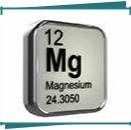 Brain Health Nutrients #1: Magnesium
Brain Health Nutrients #1: Magnesium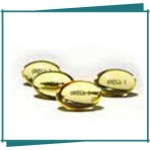 Brain Health Nutrients #2: Omega-3 Fatty Acids
Brain Health Nutrients #2: Omega-3 Fatty Acids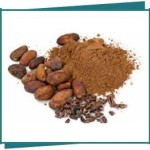 Brain Health Nutrients #3: Cocoa Flavanols
Brain Health Nutrients #3: Cocoa Flavanols Brain Health Nutrients #4: Cruciferous Vegetables
Brain Health Nutrients #4: Cruciferous Vegetables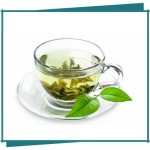 Brain Health Nutrients #5: Green Tea
Brain Health Nutrients #5: Green Tea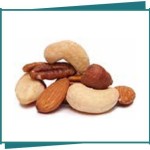 Brain Health Nutrients #6: Nuts
Brain Health Nutrients #6: Nuts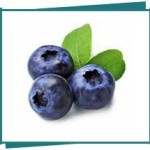 Brain Health Nutrients #7: Blueberries
Brain Health Nutrients #7: Blueberries